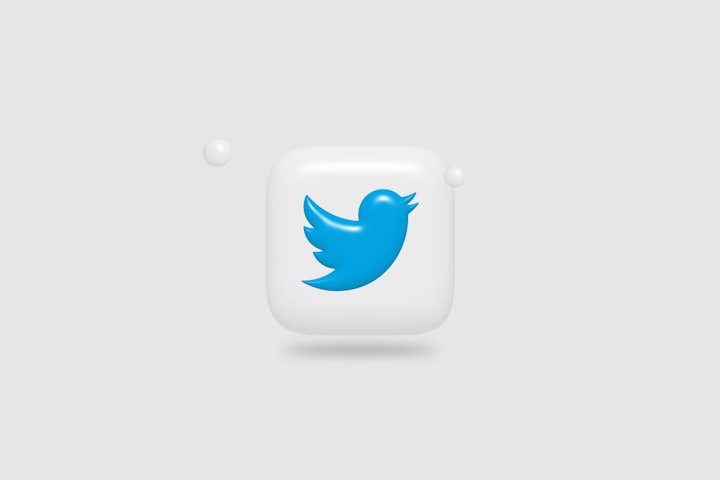AI Shames You
And We Kind Of Deserve It.

AI shames you; and we kind of deserve it.
You’re not here for me to introduce you to AI image/text/code/video generators. By now you know the skinny; generators, trained by data-sets of millions of examples, made by real human beings who never gave their consent to any of this, are able to produce “new” pieces of art, text, code, and responses to prompts inputted in by users. Since then, there’s been a panic over the future of creative fields; what does it mean for us if what takes us hours, days, or months to do can be done in seconds by AI?
There’s a lot to be said about whether our fears (and which ones specifically) are justified. Personally, I think there’s a slight-of-hand scenario happening here; the inconsequential elements are distracting us from the real issue. I’m not saying your fears aren’t valid, but if the stuff that scares you is what’s public, maybe we should be worried about the stuff that isn’t, at least not yet.
Whatever your take away, I think much of the discourse of AI so far is a mixed bag. AI can do pretty impressive things, but what we’re not seeing is how random and frustrating much of it is to get right, let alone improve.
Most notable, legitimising examples for the potential of AI have come from professionals who use generators more as tools than wish granting genies, touching up results in their chosen mediums (e.g. Photoshop, text processors, editing suites, etc), or just using them more as references or mock-ups for bigger projects. Even many taking the title “prompt engineer” seriously freely admit that much of their success comes from how the generators are used, not just that they’re used. There’s an ironic uroboros on display; many of the talented creatives worried about being replaced by this are the ones talented and inventive enough to utilise it as such.
There’s much sensationalising happening with AI at the minute, no matter how you look at it, but like with all slight-of-hand, the trick is what you don’t see; what you don’t pay attention. And for all the talk of robot uprising fear-mongering and Boring-Dystopia fuel circling the internet, I think a big danger AI presents has so far gone largely undiscussed.
... We’re kind of basic bitches.
For all the talk of AI unlocking our creativity, or democratising expression, or improving our lives, we’ve so far having being using it for any of that. Most of the discourse around AI involves mash-ups or pre-existing IP reimagined and on tap.
Neon Sign Glasses Casey Neistat. Pikachu Darth Vader. Harry Potter Characters As Toddlers. Steampunk Cyborg Super Mario. Apple Store Pyramid Ruins.
We have, whether we want to admit it or not, technology that can, to one degree or another, materialise our dreams, our fantasies, and unlock our imaginations. But no. All we want is Anime Nicolette Shea Colonising Mars (note-to-self, remember this for later).
The same can be said for the other AI programs. Instead of inputting poetry or a short story into, say, ChatGPT and asking for a proofreading advice, or to shorten to a certain word limit, we get self-publishing platforms flooded with Werewolf Romance Novel Set In Nova Scotia in the 1980s, or 100k Word Sci-Fi Crime Thriller In The Style Of Sherlock Holmes With Moriarty As A Vampire, or YA Dystopian Franchise Reimagining Of Pinocchio (shit, I think there’s something in that one).
Again, on the coding end, we could have a new explosion in apps and tech start-ups, the likes of which haven’t been seen since the early to mid 2000s. Yet here we are, with nothing except stories on Reddit of people who land lucrative software jobs they admit they have no introductory understanding of.
That seems to be another example of how unimaginative we’ve been with this technology; we’re applying it to our jobs, trying to purposely replicate our work. Now it’s ergonomic to shave off minutes where possible. Why waste time writing an email telling the marketing team or your accountant to expect a zoom call around 3 or be in conference room D for noon, when you can just type “construct an email, friendly in tone, inviting Mark to a meeting at 10 sharp, signing off as Alicia from management”? But this too exemplifies the lack of imagination and ambition most people have when the motivation is “how can I use this to my benefit”.
Our predictable is one of the ways this tech was made possible. Remember those millions of data-sets mentioned above. From that, an average data-point can be observed and an average response can be given. It’s similar to how the average human works. I say hello to you, you say hello to me. In reality, very few things in our lives are wholly original or against the average. This is why a prompt like “a picture of a man” or “a happy dog” is bound to be easier to mimic than the more abstract; AI has a larger data-set to pull from because, for the most part, we’re taking pictures of ourselves, our pets, cars, buildings, etc. When’s the last time you took a picture of the emotion “indignation”?
In a way, AI’s usage is indicative of a much larger problem; the rapid decline and discouragement of abstract and critical thinking, experimentation, creativity, reassuring individualism, and taste. It’s no coincidence that the fields of the Arts and Humanities most threatened by AI are also the ones most likely to be cut back in school, underpaid even in businesses dependant upon them, and are somehow paradoxically ridiculed as unwarranted yet constantly in demand as entertainment. Coupled that with generations raised on sequels, references, IP, cross-media tie-ins, the constant consolidation of media into fewer and fewer hands, echo chambers, and attention grabbing content that demands immediate responses, and it’s no surprise people want X meets Y. It’s familiar, simple, and quick. It’s the same as a casino slot machine.
No one needs to produce an art portfolio to be allowed to use AI. There is utility in novelty. And there is a case to be made that people are just working with what they have; it’s not fair to expect the next Norman Rockwell to appear from reruns of The Big Bang Theory. But it’s incredibly revealing that this is what people think creativity is and for; nostalgia, engagement farming, and pandering.
Like what you like. If you enjoy a genre or a franchise, I’m happy for you. It’s just disconcerting that at a time when many creatives are fearing for their livelihoods, when one of the biggest entertainment guilds in the world (WGA) is striking over low pay and the threat of AI, and there’s a political movement to silence voices and representation for being “woke”, that people with an ungodly level of potential for expression, creativity, and experimentation are choosing to indulge in what they’ve seen a million times before.
About the Creator
Conor Matthews
Writer. Opinions are my own. https://ko-fi.com/conormatthews






Comments
There are no comments for this story
Be the first to respond and start the conversation.